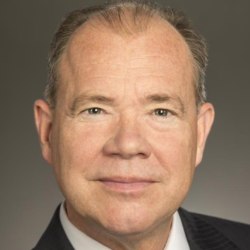For Tax Raisers, End of Drought Is Bad News
Editor’s Note: Anyone who thinks the drought is NOT over should read this weather blog – more authoritative than ANYTHING coming out of the mainstream press. View the graphics, all of them from official sources, depicting California’s current (1) percentage of normal precipitation, (2) soil moisture, (3) streamflow, (4) Sierra snowpack, (5) “Palmer drought index”, and (6) reservoir storage. In the commentary to follow, Jon Coupal explains the real reason for the reluctance of our state and even federal officials to admit the drought is over. Sadly, the policies that will endure will have more to do with taxpayers funding rebates to to force consumers to purchase expensive and poorly designed “water efficient” appliances, instead of developing resilient new sources for additional water.
As I write this, it is raining in Sacramento. Pouring, actually. And even though I live about 200 yards from the Sacramento River, I have confidence that the levees within the city limits are in good shape. (As well they should be given that Sacramento’s flood control agency collects millions of dollars from local property owners annually to keep them maintained).
In a word, California is wet. Rain totals and snowpack measurements are the highest we’ve seen in about a decade. But despite the fact that flood gates at major dams throughout the state are now open, levies have been breached and there is serious flooding in both Southern California and the Central Valley, the State Water Resources Control Board refuses to declare the drought over.
As taxpayer advocates in a high tax state, we’re accustomed to seeing a political motivation in most statements coming from government. But this time, we’re not alone. Local water officials gave the State Water Resources Control Board an earful last week about the failure to call the drought over. A representative of the California Water Association, an organization comprised of local water districts, noted that the Yolo Bypass (designed to prevent flooding in Sacramento by releasing vast amounts of water into uninhabited farm land where it eventually flows back into the delta) now “looks like Lake Michigan.” But state water officials were not persuaded and decided to keep the draconian drought regulations in place “for a few more months.”
So are state officials being overly prudent? Even if they have the best of intentions, they are losing credibility by claiming that a “drought emergency” still exists. But what if the intentions of some state politicians – including the governor – are not so noble?
Back when the drought was real, there were calls by the governor that certain constitutional protections for taxpayers were preventing the state from dealing with the crisis. Proposition 13’s voter approval requirements as well as Proposition 218’s “cost of service” water rate limitations were the targets of complaints. Indeed, after a Court of Appeal decision over the summer upheld Proposition 218’s commonsense requirement that water rates had to reflect the true cost of providing the water to water users, Governor Brown lashed out claiming that this deprived him of any tools to deal with the water shortage. (This was nonsense, as nothing in Propositions 13 or 218 took away an array of tools available to local governments to incentivize conservation and disincentivize waste).
The real problem for the politicians and bureaucrats is that if the drought is truly over, which common sense tells rain soaked citizens that it is, then this removes one more justification for repealing or weakening those laws designed to prevent governmental overreach.
Jon Coupal is president of the Howard Jarvis Taxpayers Association — California’s largest grass-roots taxpayer organization dedicated to the protection of Proposition 13 and the advancement of taxpayers’ rights.
